Search Results
Showing results 1 to 20 of 26
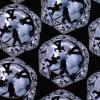
Spherical Reflections
Source Institutions
In this art meets science activity, learners pack silver, ball-shaped ornaments in a single layer in a box to create an array of spherical reflectors.
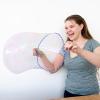
Bubble Tray
Source Institutions
In this activity, learners use simple materials to create giant bubbles.
Mix and Match
Source Institutions
In this optics activity, learners explore color by examining color dots through colored water and the light of a flashlight.
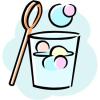
Why Are Bubbles So Colorful?
Source Institutions
In this activity, learners explore why they can see colors in bubbles and why they change.
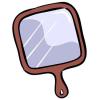
Mirror, Mirror on the Wall: Angles of Reflection
Source Institutions
In this optics activity, learners work in pairs to explore how mirrors work. Learners use tape to mark the angles needed to see each other's reflection in a wall mirror.
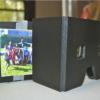
Stereoscope
Source Institutions
In this activity, learners construct a device that allows them to view 2-D images in 3-D.
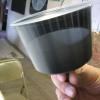
Mini Zoetrope
Source Institutions
In this activity (posted on March 27, 2011), learners follow the steps to construct a mini zoetrope, a device that produces an illusion of action from a rapid succession of static pictures.
What Causes Rainbows?
Source Institutions
In this activity, learners explore how and why rainbows form by creating rainbows in a variety of ways using simple materials. Learners create rainbows indoors and outdoors.
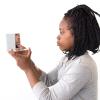
Corner Reflector
Source Institutions
In this optics/mathematics activity, learners use two hinged mirrors to create a kaleidoscope that shows multiple images of an object.
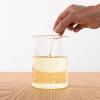
Disappearing Glass Rods
Source Institutions
In this optics activity, learners discover how they can make glass objects "disappear." Learners submerge glass objects like stirring rods into a beaker of Wesson™ oil to explore how the principles of
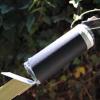
Periscope
Source Institutions
In this activity, learners construct a device that allows them to look over ledges or around corners.
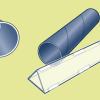
Kaleid-o-mania
Source Institutions
In this hands-on activity, learners build their own kaleidoscopes and explore how light can reflect of off surfaces such as mirrors, to produce beautiful patterns.
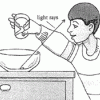
Make Money Appear Before Your Eyes
Source Institutions
In this optics activity, learners use water to make a coin "appear" and "disappear." Use this activity to demonstrate how light refracts and introduce light as waves.
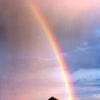
Release the Rainbow
Source Institutions
In this activity, learners create a water prism to break light into the seven colors of the rainbow.
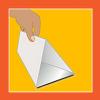
Kaleidoscope
Source Institutions
In this activity, learners investigate the reflective properties of light and mirrors as they make a kaleidoscope.

Sensory Hi-Lo Hunt
Source Institutions
In this outdoor activity, learners use only their senses to to find the extremes of several environmental variables or physical factors: wind, temperature, light, slope and moisture.
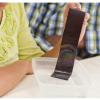
Rainbow Film
Source Institutions
In this activity, learners use clear nail polish to create a beautiful iridescent pattern on black paper. Learners discover that a thin film creates iridescent, rainbow colors.
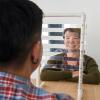
Your Father's Nose
Source Institutions
In this fun optics activity, learners explore principles of light, reflection (mirrors), and perception. Learners work in pairs and sit on opposite sides of a "two-way" mirror.
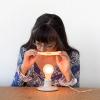
Pinhole Magnifier
Source Institutions
In this activity related to light and perception, learners use a pinhole in an index card as a magnifying glass to help their eye focus on a nearby object.
Why is the Sky Blue?
Source Institutions
In this activity, learners create a "mini sky" in a glass of water in a dark room.
